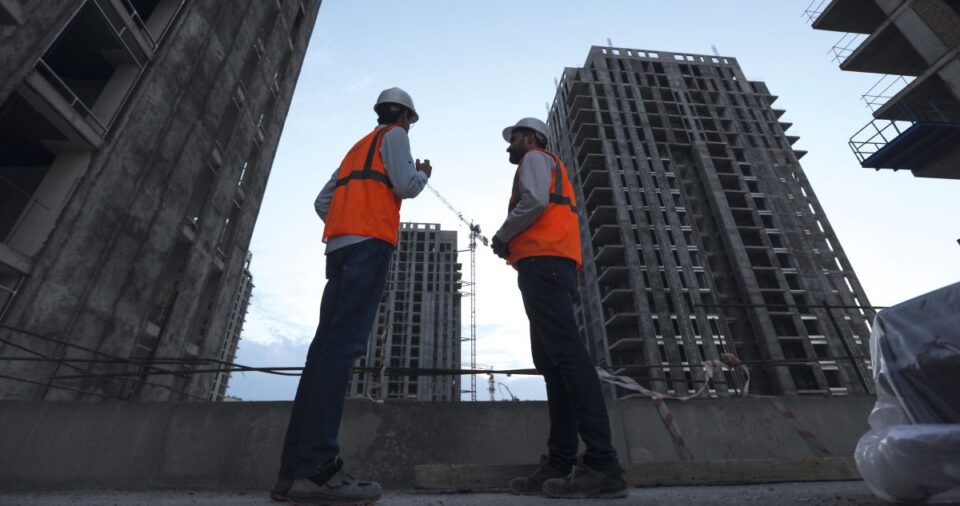The KRG’s ninth cabinet has approved 404 investment projects, attracting over $17 billion, revitalizing key sectors, approving 100 projects, and creating 10,000 job opportunities despite global challenges.
Numerous significant projects have been implemented since the onset of the ninth cabinet of the Kurdistan Regional Government (KRG). These projects have played a pivotal role in the economic development and advancement of Kurdistan’s infrastructure. Many of these projects, spanning multiple sectors, have contributed to the creation of jobs and boosted economic activity throughout the region.
The Kurdish Globe has learned that the KRG’s investment authority, since its establishment on August 1, 2006, until June 25, 2024, the KRG has approved 1,235 investment projects across the governorates of Erbil, Sulaymaniyah, Duhok, and Halabja, as well as the autonomous administrations of Garmiyan, Raparin, Soran, and Zakho.
The total value of these projects, according to the KRG statistics, exceeds $69.66 billion, covering an area of 78,828 thousand dunams. Of these, 47 were foreign investment projects, 1,160 were domestic, and 28 were joint ventures.
During the ninth cabinet, the investment volume has shown a notable increase, with total project approvals amounting to over $2 billion and more annually. This trend, which began in 2019, saw investment projects valued at nearly $2 billion in 2020, surge to $8.5 billion in 2021, and then fall to $2.224 billion in 2022 and more than $2.41 billion in 2023. From the start of this cabinet to the present, 404 projects worth over $17 billion have been approved, averaging more than 100 approvals annually.
These statistics reflect the reality that, despite various challenges—such as the COVID-19 pandemic, fluctuations in oil prices, budget cuts, global economic instability, and drought, the Kurdistan Region has emerged as a stable and viable destination for investment.
In addition to these figures, more than 35,000 companies have been registered in the Kurdistan Region, with 3,500 of them being foreign companies from countries such as New Zealand, Egypt, Lebanon, Kuwait, France, China, Sweden, Syria, Russia, Georgia, Turkey, the UK, UAE, Iran, the USA, and Germany.
The revival of investments and the inflow of capital from these companies underscores the opportunities for economic activity across the Kurdistan Region’s governorates and autonomous administrations. This includes organizing exhibitions, conferences, and debates, along with the arrival of numerous high-ranking officials, business delegations, and industry representatives. These developments signal that investment in this cabinet has bounced back, following a period of decline due to various financial crises. Presently, there is renewed activity in the market and the broader economy.
Moreover, these investment projects have generated job opportunities for 10,000 young people. It is recommended that the local workforce constitutes no less than 75 percent of the jobs created within these projects. Additionally, these investments have provided indirect benefits to the broader market, bringing advantages to professionals and small businesses alike.
The Kurdistan Region’s investment strategy has focused on diversifying its economy by expanding key sectors such as agriculture, industry, and tourism, which aligns with the ninth cabinet’s vision for long-term economic stability. Between 2019 and 2024, significant progress was made with 111 projects launched in the industrial sector, 50 in tourism, and 16 in agriculture. Additionally, 95 projects were initiated in trade, 25 in health, 38 in education, 37 in housing, 9 in sports, 2 in banking, 3 in services, and 2 in the arts. Notably, 20 projects were approved in just the first half of 2024, reflecting ongoing economic growth and diversification efforts.
During this cabinet’s tenure, from July 2019 to June 2024, 37 housing projects valued at $3.631 billion were approved. Conversely, projects that did not adhere to the guidelines and regulations, or those that fell short of expectations, were penalized, and several had their licenses revoked.
The Kurdish Globe

